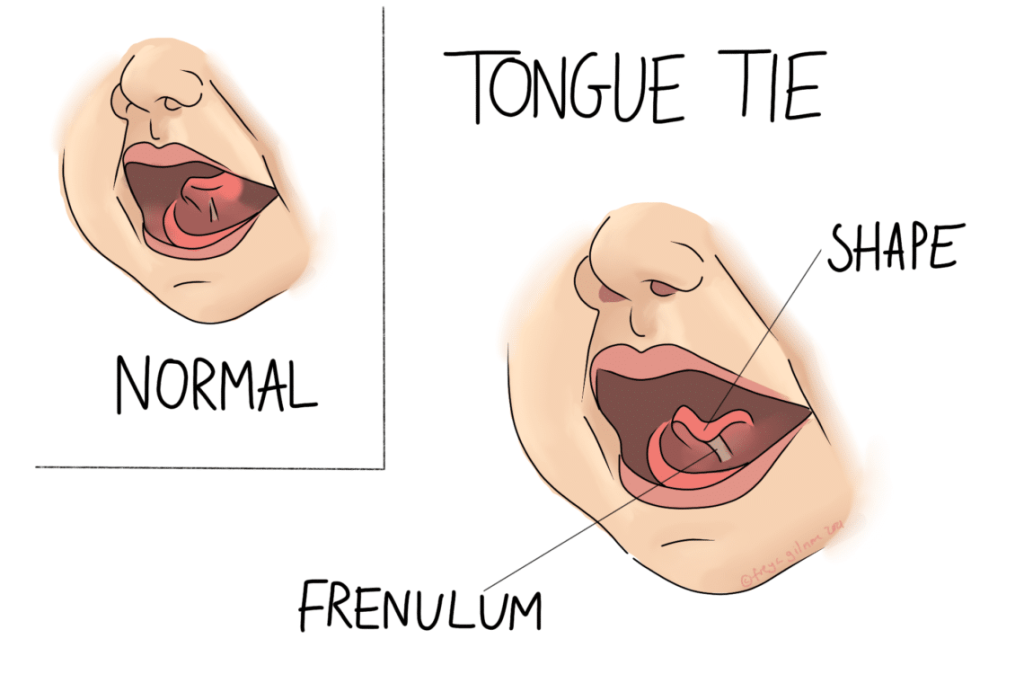Tongue Tie
Getting started with breastfeeding can be difficult for any mum and baby, but a range of challenges arise when the baby has a tongue tie or lip tie.

What is Tongue Tie?
Under your tongue, there is a stringy piece of tissue (frenulum) that connects the centre of the tongue to the base of the mouth. It should be far back enough that it does not limit the movement of the front of the tongue. A tongue tie can be diagnosed when the tongue movement is limited by a frenulum that is too short or connects too far forward. They can be notoriously hard to diagnose, particularly for the less severe cases.
What is a Lip Tie?
If you turn your top lip out in front of a mirror, you’ll see a similar frenulum in the centre of the lip, joined high up on the gum. Again, if this tissue is short or attaches over too broad an area, there may be feeding issues. Effective feeding requires the top lip to turn right out, otherwise latch might be shallow or have a poor seal.
Lip tie is much less well known than tongue tie, and as such it may be more easily missed.
Signs and Symptoms
As the condition is a spectrum, not all cases will present in the same way. Some common signs we expect are:
- painful latch when breastfeeding
- baby taking on a lot of air while feeding (breast or bottle)
- noisy feeding
- a “heart shaped” tongue when crying (illustrated)
- inability to stick tongue out (young babies may mirror you, but not all will)
- milk residue on the tongue after feeding- not to be mistaken with thrush. This happens if the tongue does not rub against the roof of the mouth.
It is worth noting that there are other causes for most of these signs, and that a false diagnosis of tongue tie is just as problematic as a missed diagnosis. If these signs are not picked up soon after birth, you can ask your paediatric osteopath, midwife, health visitor, GP, or lactation consultant for another opinion.
Longer Term Effects
As a baby grows, a tie may rectify itself. However sometimes an adult can be diagnosed with a tie too. Restricted tongue movement may affect speech development, but this is not always the case. If a tie is significant enough to impact feeding for a long time, this might cause slow weight gain. Speak to your health visitor if you are worried and need to get your baby weighed as not all GP surgeries have the facilities.
Management
Conservative management is recommended where possible, but there is also a limited window when surgery is optimal. Young babies do not have the nerve development in the frenulum that older babies do. Corrective surgery after this point is more complicated as anaesthetic needs to be used.
Your paediatric osteopath can offer conservative management. The frenulum is a soft tissue, which can be stretched and exercised like any other. Techniques in the treatment room to encourage its mobility can be a solution in some cases.
It may also be worth working with a lactation consultant if you are breastfeeding. Some babies quickly get to grips with it once their tie is resolved, but others still struggle. A lactation consultant can offer techniques to make feeding more comfortable and efficient.
Make an appointment for your baby across Leicestershire and Rutland here.

